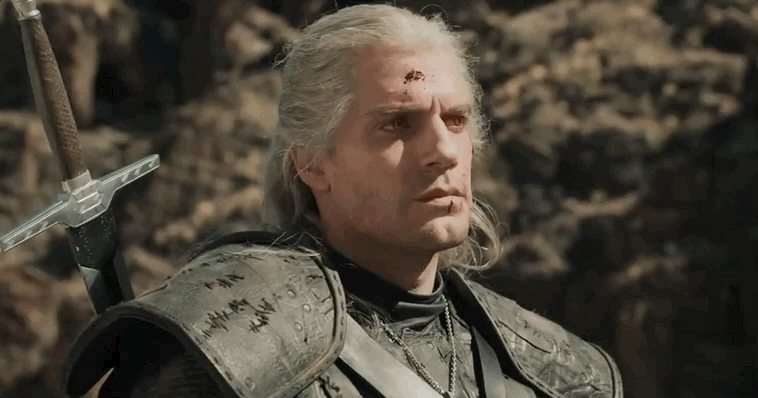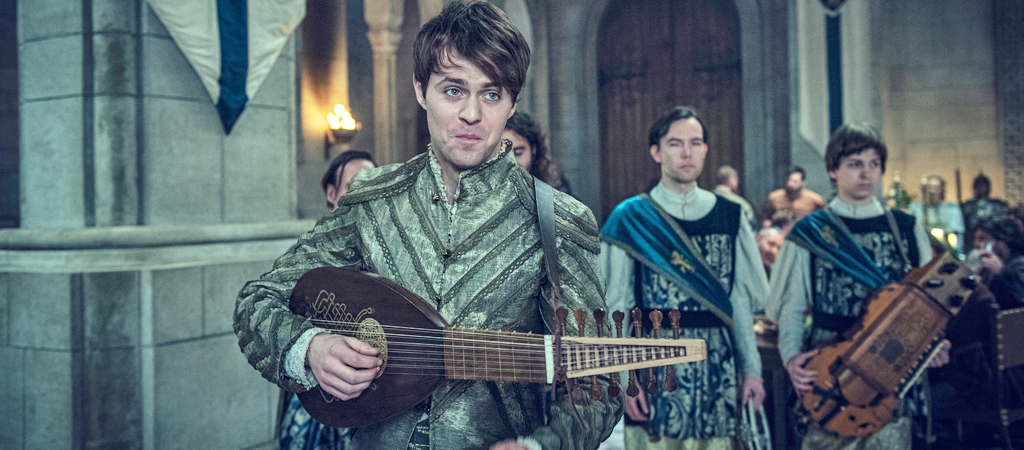Netflix’s The Witcher TV show turned out to be far more enjoyable that it ever needed to be to satisfy fans of the games and book series. Henry Cavill belongs to that same legion of devotees, so he comes by his Geralt of Rivia portrayal honestly, with every sword swing echoing the spirit of the character. Likewise, Cavill does “grumpy” well, which is an attitude that Geralt cannot help but embody, given that the loner monster hunter is despised by an unappreciative humanity. That’s where the beauty of “humble bard” Jaskier (played by Joey Batey and a character who I didn’t dare to discuss during my review, because spoilers) comes into play. Yet what Jaskier has wrought is getting out of hand, beyond inspiring newcomers to flock toward the show’s source material.
Yes, I’m talking about the damn catchy “Toss A Coin To Your Witcher” song. Given that Netflix promoted the show by practically chanting, “The worst monsters are the ones we create,” I’m declaring that this song is a beast that’s transcended its creators to become truly monstrous — in a good way, mostly. When I first heard the tune surface, I figured that it would please fans, given the begrudging dynamic between Geralt and his admirer. And I imagined that people might start referring to the song as a “banger,” which has happened, although I thought the remark would be more in jest than it’s turned out to be. Very clearly now, the tune has bewitched the masses. The remixes (and covers) continue to multiply at an astounding rate. People can’t get enough of this blasted song, which has reached earworm-levels similar to “Misbehavin'” from The Righteous Gemstones.
“Toss A Coin” initially surfaces in second episode, which begins with Jaskier (whose name translates from Polish into “buttercup,” although “Dandelion” is his game incarnation) first encounters Geralt brooding alone in a pub corner. It was clear from the beginning that the adoration wasn’t mutual. Geralt regards Jaskier, who later hovers like a mosquito behind the White Wolf, as an annoyance, although the bard begins to endear himself to the White Wolf by episode’s end. Much of that has to do with this tune’s lyrical stylings. Here’s the original song, if you’re not familiar or simply want to listen again:
I’ve gone through a process (and not an entirely pretty one) with this song. It’s joyously agonizing, and it’s now reached the point where the tune’s been living in my head for weeks. Further, friends and relatives alike couldn’t stop talking about this TV show and this song over dinner and beyond. What is it about the song, really?
That’s my epic tale
Our champion prevailed
Defeated the villain
Now pour him some aleToss a coin to your Witcher
O Valley of Plenty
O Valley of Plenty
Oh oh ohToss a coin to your Witcher
And friend of humanity
I think the magic comes down to what happens in this moment.

That’s a barely perceptible smile (followed by a characteristic “hmm”) from a completely bewildered Geralt as he begins to follow Jaskier, who’s been singing for several seconds already and is fading into the distance. The Witcher simply cannot comprehend that someone’s singing his praises for any reason, let alone embellished ones. For the first time, someone appreciates him for the good that he does, and not only that, but Jaskier has verbally decorated their recent adventure far beyond what actually transpired. While hunting a grain-stealing “devil,” the two men found themselves to be prisoners of elves, and they emerged only because Geralt commiserated with the creatures over their mutually ostracized status. Geralt’s resigned himself to co-existing with humans in order to survive, and the elves free their captives after realizing that he’s not only different from other Witchers, but he’s not unlike the elves themselves.
In the aftermath, Jaskier grows determined to change the public’s tune about Geralt, so of course, he exaggerated the hell out of what went down in that cave. Stuff about kicking in teeth, thrusting elves on shelves, and other such nonsense. These modifications are funny but necessary, given that Geralt really needs to be talked up in order to appeal to people. Witchers are hated and feared, and Geralt’s walking around with his mutant powers and potions and leather pants that smell of onions commingling with destiny. Yet he was, prior to Jaskier’s song, largely content with Roach the horse being his only companion. Does Geralt enjoy being verbally shunned, physically attacked, and having food tossed at him by disgusted villagers? Not particularly, but he was getting by, even though monster-slaying gigs aren’t as lucrative as they should be.
It’s that little smile from Geralt that arguably begins to transform his character. He later opens himself up to Yennifer, admitting that he possesses human emotion and describing her as important to him, something that he may not have allowed himself to do, if not for Jaskier’s tribute. And of course, he also saves the bard’s life after a djinn inflicts a wound that begins to spread. All in all, the bard’s song sets the tone for some important relationships in this series, and although Jaskier disappears before season’s end, one can expect to see him again with the series’ sophomore turn. Well, the song had better return as well, or the show’s fans will bare some monstrous teeth.
‘The Witcher’ is currently streaming on Netflix.







